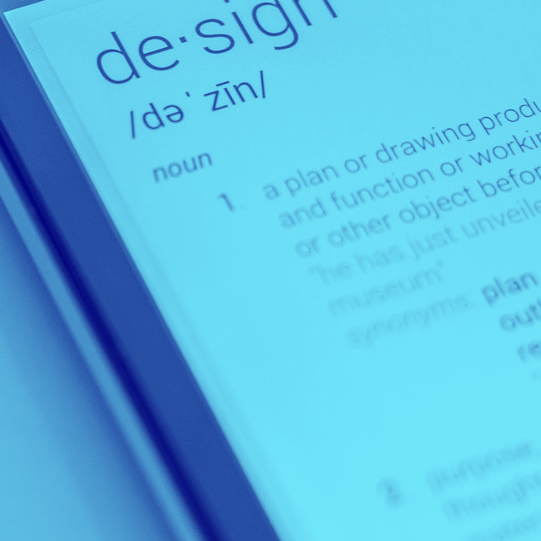Measures open scientific production published by researchers from Catalan universities.

Open knowledge at the UOC
What is open access? Which are its benefits? The open access publishing strategies, its legal framework, and much more.
International Open Access Week at the UOC
The end of October every year sees the holding of International Open Access Week, an event for sharing and learning about the advantages of publishing free, immediate and restriction-free content. The UOC is taking part, organizing events and providing information on open access publishing.
Previous International Open Access Weeks
2023
We are recommending content for sharing and learning more about open knowledge.
2022
We are recommending content for sharing and learning more about open knowledge.
2021
The UOC's institutional open knowledge policy
The UOC Executive Board approved the Institutional Open Knowledge Policy. Its mission is to establish the institutional framework that will allow the members of the university community to openly share and transfer the knowledge they create as a result of their research, teaching, innovation and institutional administration activities.
Find out about the ins and out of sharing and transferring the knowledge created at the UOC.
An interactive tour to assist you in the process of sharing the knowledge you've produced. . It helps you to understand the steps you have to take by simply clicking on the answers on each page to continue with the process or obtain more information.
News article explaining how the UOC supports open knowledge and how it benefits research staff.
Seminar: "Open knowledge: debunking myths"
On Wednesday, 27 October, from 3 p.m. to 4:30 p.m. (CEST), the UOC is organizing a seminar for University staff aimed at dispelling the myths surrounding open access publishing. It will cover issues such as: open access publishing is more expensive; it does not further your academic career; there's data theft, or we can't guarantee proper use of the data.
This practical talk seeks to dispel four myths about open access publishing.
Open data for understanding the pandemic
The Government of Catalonia's Ministry for Foreign Action and Open Government is organizing a series of Annual Open Government Events to explain to the general public how open government helps improve public policies and democratic quality.
There will be a session involving the UOC on Tuesday 26 October at 4 p.m.: an internet discussion panel on how to leverage Catalan Government open data to promote better communication in real time on what was happening with the pandemic, providing education on its evolution and the decision-making process for both public bodies and individual citizens.
Volunteer voices to help technology talk in Catalan
The UOC is issuing a call for volunteers to add their voices in Catalan and help create open knowledge for apps based on artificial intelligence and language technology, including voice assistants, machine translation systems and chatbots.
This initiative forms part of the Common Voice open platform promoted by Softcatalà.
There are two ways you can participate as a volunteer, as explained in more detail on the Common Voice interactive website: adding your own voice or validating submitted clips.
Editorial UOC takes part in the campaign Abre tu libro al mundo (Open your book to the world)
The UOC is taking part in this campaign with the open access book Decálogo para la mejora de la docencia online. Propuestas para educar en contextos presenciales discontinuos (Ten proposals for improving online teaching. Ideas for educating in discontinuous face-to-face contexts), organized by the Spanish university publishers and libraries working group of the Unión de Editoriales Universitarias Españolas (UNE, Union of Spanish University Publishers) and the Red de Bibliotecas Universitarias Españolas (REBIUN, Network of Spanish University Libraries).
International Open Access Week will see the sharing of books by participating institutions in this section and on social media under the tag #AbreTuLibro. A great opportunity for finding something new to read!
University publishers share their books published under open access.
New collection of open access final projects on gender studies
The UOC's O2 repository recently unveiled a new collection of final projects featuring gender studies-related content.
It contains 19 works covering a range of fields of study at the University, including bachelor's and master's degree final projects dealing with the study of women, men and LGTBIQ-related issues. The collection will be regularly updated with new additions.
2020
International Open Access Week is back – this year from 19 to 25 October – to raise awareness of the benefits of the open access movement. Over seven days, participants will be organizing activities and disseminating information to promote access to academic content for anyone, anywhere in the world, online, free of charge and permanently.
The UOC has prepared a range of contents to mark this annual event as part of our commitment to knowledge and open science and our contribution to solving the global challenges of the 2030 Agenda.
Results of the Open Knowledge Action Plan
This new information graphic looks at the key points of the UOC's Open Knowledge Action Plan. The action plan was launched in 2018 with the aim of opening up the knowledge generated at the UOC in order to contribute to its globalization and raise the profile of the excellent research and teaching it carries out.
The UOC's Open Knowledge Action Plan is structured into six core areas for the promotion of open publications, open research data, open learning, open innovation, a university open to society and new research assessment models, in addition to a further three universal branches of work focused on training, communication and awareness raising in this area; open infrastructure development; and participation in leading forums with regard to this reality.
Defining a new open knowledge policy
There is an open knowledge policy in the works. Want to help design it?
The UOC is planning to launch an internal, transparent and collaborative participatory process to define, implement and disseminate a new open knowledge policy involving the participation of its teaching and research staff. The aim is to adapt the current policy, drawn up in 2010, to the advances made in the fields of open access and open science in recent years.

Glossary of open terms
To learn more about the open access movement and open science, we offer a short glossary with the definition of twenty frequent terms.
The UOC's institutional repository, O2
The UOC's O2 repository preserves and disseminates nearly 14,000 contents produced as part of the UOC's academic and research activity.Since the Open Knowledge Action Plan was put in place, the number of scientific articles deposited in the O2 has increased significantly, rising from around 300 articles to over 2,000 in the last three years alone.
In the repository, you can also consult teaching and learning materials (final degree projects, continuous assessment activities and open learning resources), other research documents (data, book chapters, doctoral theses, conference papers and reports) and institutional documents.
Open books by Editorial UOC
This year, to promote online teaching during the lockdown, Editorial UOC has, for the first time, published in open access a collection of around 80 e-books on social sciences and the book in Spanish Decálogo para la mejora de la docencia online. Propuestas para educar en contextos presenciales discontinuos.
During Open Access Week, Editorial UOC is taking part in the Vives Network campaign with the book La Comunicació no verbal by Teresa Pont i Amenós.
Emergency online teaching
In this guide, you will find a collection of tools and a readings that UOC experts shared during the various sessions as part of the "Emergency online teaching" initiative carried out in the midst of the lockdown. More than 9,000 teachers from 47 countries took advantage of the training sessions to learn about other possibilities for teaching online.
Open education for educational change
Open educational resources (OERs) have been created to help usher in educational change. Unlike other materials, thanks to their licence, they promote use, reuse, redistribution, remix and sharing. We have prepared some materials for you to learn more about them:

Retain, Reuse, Revise, Remix and Redistribute.

Copyright, Creative Commons and Copyleft.
2019
The Universitat Oberta de Catalunya will be running a free online course on open science from 21 to 25 October, coinciding with International Open Access Week. Its medium is Twitter. Now being run for a third time, this micro-MOOC is a pioneering initiative supported by eighteen universities from around Spain, the Spanish National Research Council (CSIC) and five European partners.
Every day of Open Access Week the @moocmicro account will be tweeting on basic concepts and ideas relating to open science, the benefits of publishing in open access, standards and tools for managing, sharing and safeguarding research data, participative research, social impact, research integrity, citizen science and new ways of evaluating scientific output.
Thanks to collaborative efforts, followers will be able to access this third edition in Catalan, Spanish, Galician, Basque and English. To find the tweets in the language you want, check the publication times (Central European Summer Time) and hashtags listed below:
- 9 am: in English: #OpenScienceMOOC19
- 10 am: in Catalan: #CiènciaObertaMOOC19
- 11 am: in Spanish: #CienciaAbiertaMOOC19
- 12 pm: in Galician: #CienciaAbertaMOOC19
- 1 pm: in Basque: #ZientziaIrekiaMOOC19
This micro-MOOC, coordinated by the Universitat Oberta de Catalunya (UOC), has gained further backing in its efforts to promote the benefits of open knowledge. The third edition of this free course will again be run on Twitter, from 21 to 25 October, coinciding with International Open Access Week. It has been put together by eighteen universities from around Spain and the Spanish National Research Council (CSIC), and has received support from five European partners.
Open Access Observatory
The purpose of the Open Access Observatory is to monitor the current status of open access publications in the three participating institutions: the University of Barcelona, the Universitat Politècnica de Catalunya and the UOC.
Every year the Observatory updates its information on scientific articles in open and closed access, using Web of Science and Scopus as sources. It is now possible to consult the percentages of articles published in gold, hybrid and green access over the last six years.
Data shows us that the majority of the open access publications from the UOC have been published using the gold route, in other words, articles published in open access journals. The second most popular route is green, whereby publications are self-archived in the UOC's institutional repository, O2.
The Library service for open access publications
This infographic tells you about the services the Library offers to help you publish your work in open access.
Course on Open Access
The objective of the course is to know the benefits that open access can provide and to learn how to publish both publications and research data openly. In short, to make understand why open access, public commitment and scientific education are important in strengthening the role of science in society and in culture.
You can download the learning resource available in the O2 UOC Repository: http://hdl.handle.net/10609/101366
2018
The UOC will be participating in a number of activities for OAWeek this year, aiming to raise awareness about open access and generate commitments to open publishing.
Take part in the game, since 22 October, in Tibidabo, 22@ and Castelldefels buildings. Check the instructions.
Micro-MOOC on Open Acces
From 22-10-2018 to 26-10-2018
- 10:00 catalan version
- 12:00 english version
This free Twitter course, running for a second time, will be given this year in Catalan and English. Simply follow the @moocmicro account and the #OAMOOC hashtag - #OAMOOC18 for English - where content will be published every day.
UOC's Open Knowledge Action Plan
22-10-2018 12:00 UOC's Open Knowledge Action Plan
Sala d'actes, Universitat Oberta de Catalunya. Avinguda Tibidabo
The UOC is launching its Open Knowledge Action Plan, the general idea of which is to open up the University and to co-create and share knowledge. This drive aims to contribute to the University's globalization and raise the UOC's profile of excellence in research and education.
Pla d'Acció de Coneixement Obert | UOC
One of the Open Knowledge Action Plan's cornerstones is open access to scientific publications. To ensure that the knowledge generated at the UOC is open and to highlight the UOC's commitment to open science, it’s necessary to boost UOC institutional repository, O2, to disseminate it and make it visible.

4th Scientific Publishing Seminar
22-10-2018 10:00
Sala d'actes, Universitat Oberta de Catalunya. Avinguda Tibidabo
A lecture on open science will be held in our 4th Scientific Publishing Seminar, organized by Library and Learning Resources.
Ernest Abadal, Professor in the University of Barcelona's Faculty of Library and Information Sciences, will talk about the theoretical precedents to Open Science, the values connecting them and the current political programmes to put it into practice.
Documental Paywall: The Business of Scholarship
24-10-2018 17:00, Cinemes Girona
A free screening of the documentary Paywall will take place at Cinemes Girona. Paywall, produced and directed by Jason Schmitt, is a critique of the current scientific publications system, and offers ideas for future improvements
This is an initiative led by Julio Meneses, professor at the Faculty of Psychology and Education Sciences, and David Masip, director of the Doctoral School, and jointly organized with the University of Barcelona. After the screening there will be a debate with Professor Alexandre López from the Faculty of Information and Communication Sciences, and Brian Russell, activist and volunteer with Collaction.org, a Dutch NGO devoted to finding solutions to collective action issues, including open science.
Observatory of Open Access
The Observatory of Open Access aims to monitor the state of open access in participating universities. Currently there are data from the University of Barcelona, the UPC (Universitat Politècnica de Catalunya) and the UOC (Universitat Oberta de Catalunya).
The open scientific production of these institutions is measured and shown, and the costs and habits of the researchers are analyzed when publishing openly.
The observatory shows, for each year since 2011, the scientific articles of each university published in open and closed access. The sources of information used are Web of Science and Scopus. The information is updated annually.












